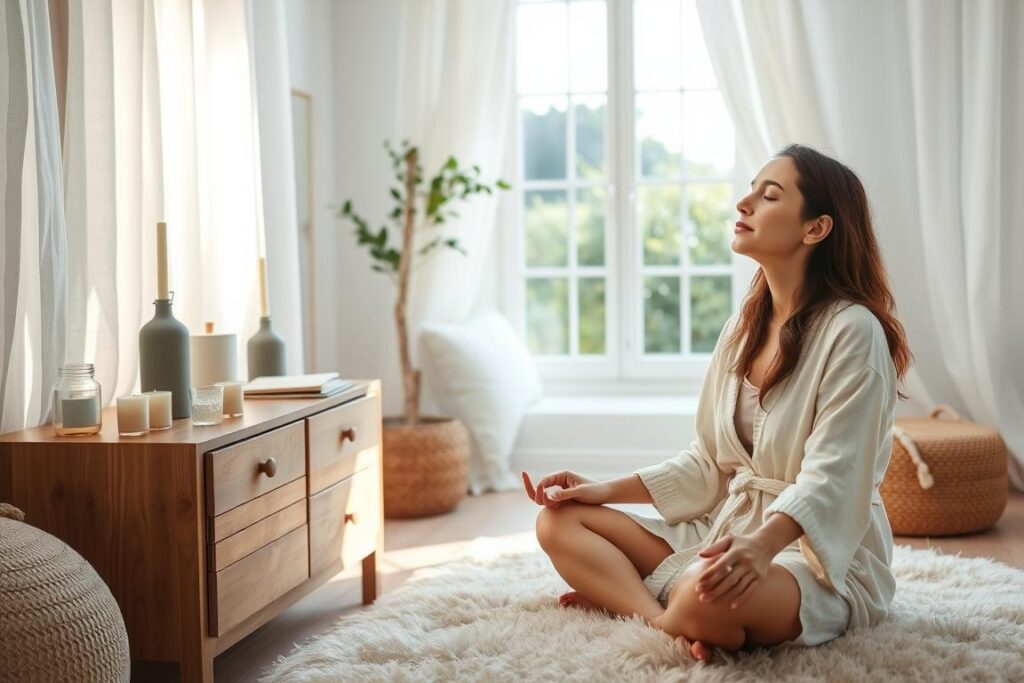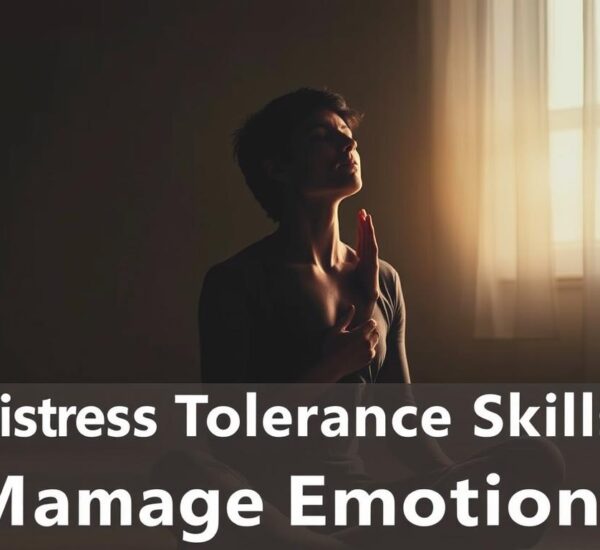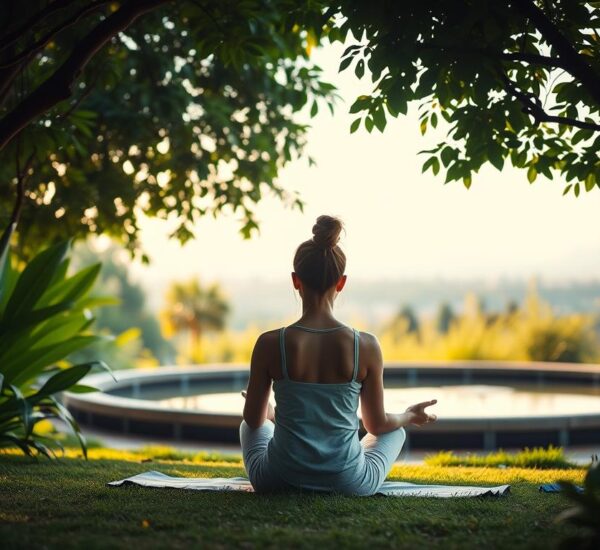In today’s fast world, it’s easy to forget about ourselves. But, taking care of ourselves is key to staying healthy. Ellen Bard says self-care is about many small habits that help us feel our best.
Adding relaxation techniques to our day can boost our mental health and lower stress. This article will show why self-care matters and share tips to help you be your best.
Key Takeaways
- Discover the importance of self-care for overall well-being
- Learn relaxation techniques to reduce stress
- Understand the role of mental health in self-care
- Explore strategies for incorporating self-care into daily life
- Unlock your best self with consistent self-care practices
Understanding the Importance of Self-Care
## Understanding the Importance of Self-Care
In today’s fast world, self-care is essential, not a luxury. It’s key for our mental and physical health. By focusing on self-care, we build resilience and improve our life quality.
Self-care includes activities that help us relax, reduce stress, and feel better. Studies show it boosts mental health, energy, and immune strength. Making self-care a priority helps us handle life’s challenges and live more balanced.
### What Is Self-Care?
Self-care means taking care of our physical, emotional, and mental health. It’s about doing things that relax us, lower stress, and boost well-being. This can be mindfulness, meditation, exercise, or spending time outdoors. By doing self-care daily, we manage stress better and stay healthy.
Regular self-care greatly benefits our mental and physical health. It improves our mental focus, lowers stress, and boosts energy. By focusing on self-care, we also become more resilient to stress and feel better overall. For more on managing stress, check out stress management techniques.
| Self-Care Practice | Benefits | Examples |
|---|---|---|
| Physical Self-Care | Improves physical health, boosts energy | Exercise, healthy eating, sleep hygiene |
| Emotional Self-Care | Enhances emotional resilience, reduces stress | Meditation, journaling, mindfulness practices |
| Mindfulness and Relaxation | Reduces anxiety, improves mental clarity | Meditation, deep breathing exercises, yoga |
Types of Self-Care Practices
The journey to holistic wellness involves embracing a range of self-care practices. These practices cater to our diverse needs. By understanding and incorporating different types of self-care, we can achieve a more balanced and fulfilling lifestyle.
Physical Self-Care
Physical self-care is about taking care of our bodily needs. This includes regular exercise, a healthy diet, and enough sleep. By prioritizing our physical health, we can enhance our overall well-being and energy levels.
Emotional Self-Care
Emotional self-care involves nurturing our emotional health. This is done through practices like mindfulness, meditation, and journaling. These activities help us manage stress, understand our emotions better, and cultivate self-compassion.
Social Self-Care
Social self-care is key for building and maintaining strong, healthy relationships. This can be achieved by spending quality time with loved ones, joining community groups, or volunteering. By nurturing our social connections, we can enhance our sense of belonging and support.
Spiritual Self-Care
Spiritual self-care involves connecting with something greater than ourselves. This can be through nature, a higher power, or a spiritual practice. This type of self-care can provide us with a deeper sense of purpose and meaning. It contributes to our overall self-love and well-being.
Building a Self-Care Routine
Adding self-care to our daily lives helps us manage stress better. Ellen Bard says tiny self-care habits can keep us on track. It’s about knowing what we need and fitting self-care into our lives.
Assessing Your Needs
To create a good self-care routine, we must assess our needs. We need to find out what stresses us and what relaxes us. Start by listing what’s important to you, like reducing stress or getting healthier.
- Identify your stressors and areas for improvement
- Determine your self-care priorities
- Explore various self-care activities
Setting Realistic Goals
After figuring out what we need, we should set realistic goals. Start small and stick to it. Begin with one or two self-care activities a day. Then, add more as you get used to it.
For more tips on balancing your routine, check out our guide on creating a healthy work-life routine.

Self-Care for Mental Well-Being
In today’s world, taking care of our mental health is more critical than ever. Our mental state greatly affects our life quality. By practicing self-care, we can greatly improve our mental well-being.
Studies reveal that mindfulness and meditation can greatly reduce stress and boost mental health. KAAST22 found that these practices help ease stress and enhance mental health. Adding them to our daily routine can increase self-compassion and mental toughness.
Mindfulness and Meditation
Mindfulness is about being fully present and aware of our thoughts and feelings. It helps us understand ourselves and our surroundings better. Meditation, focusing on something like our breath, calms our mind and lowers stress.
Together, mindfulness and meditation can reduce stress and anxiety, lift our mood, and improve our mental health. Regular practice boosts self-awareness, helping us handle life’s hurdles better.
Journaling for Clarity
Journaling is a strong tool for mental health. Writing down our thoughts and feelings helps us process and understand our experiences. It lets us reflect, spot patterns, and learn more about ourselves.
Journaling helps us release pent-up emotions, gain new insights, and see life more positively. Adding journaling to our self-care routine boosts self-awareness and mental well-being.
Incorporating Physical Activities
Adding physical activities to our daily life is key for well-being. Regular exercise boosts our physical health and mental state.
Exercise helps lower stress, lifts our mood, and boosts energy. By picking activities we like, we make exercise a fun part of self-care.
Finding the Right Exercise for You
Choosing the right exercise can be tough. Think about what you like, your fitness level, and goals.
- Try out different activities like running, swimming, or dancing to see what you enjoy.
- Get a personal trainer to create a plan just for you.
- Join a fitness class or group to stay motivated and accountable.
Recent studies show exercise is more than staying fit. It also boosts beauty and well-being by improving circulation and reducing stress.
The Role of Outdoor Activities
Outdoor activities like walking, hiking, or gardening connect us with nature. They improve our health and calm our minds.
| Activity | Physical Benefits | Mental Benefits |
|---|---|---|
| Walking | Improves cardiovascular health | Reduces stress and anxiety |
| Hiking | Boosts muscle strength and endurance | Enhances mood and overall sense of well-being |
| Gardening | Improves flexibility and balance | Promotes relaxation and calmness |
Adding physical activities, like outdoor ones, to our self-care routine boosts both physical and mental health.
Nutrition as a Form of Self-Care
Taking care of our bodies through food is key to self-care. What we eat affects our health and mood. Nutrition is a key part of self-care. Eating well boosts our energy and health.
Eating a mix of fruits, veggies, whole grains, and lean proteins is best. Foods like berries and leafy greens help our skin glow. They support our health too.

Importance of a Balanced Diet
A balanced diet keeps us healthy. It boosts our immune system and helps us stay at a good weight. It also lowers the risk of serious diseases. Making smart food choices is a big step towards better health.
- Eat a variety of whole foods to ensure you get all the necessary nutrients.
- Incorporate healthy fats, like nuts and avocados, into your diet.
- Limit your intake of processed and sugary foods.
Meal Planning Tips
Meal planning helps us eat well. It saves time and reduces waste. Here are some tips:
- Plan meals around seasonal produce for freshness and variety.
- Create a grocery list to stay on track.
- Prepare meals ahead to save time during the week.
By focusing on healthy eating, we boost our health and energy. Making smart food choices and planning meals are key. They help us care for ourselves better.
Digital Detox: Unplugging for Self-Care
Disconnecting from the digital world helps us connect with ourselves and others. Today’s fast-paced world is filled with constant info and alerts. It’s easy to get lost in our devices.
Too much screen time can harm our health. It can lead to stress, less focus, and poor sleep. Ellen Bard says taking a break from tech can boost our mental and physical health. It can also reduce stress and improve our well-being.
Reducing Screen Time Benefits
Less screen time brings many benefits, including:
- Improved mental clarity: Cutting down on screens helps us focus better.
- Better sleep: No screens before bed means better sleep.
- Increased productivity: Fewer distractions mean we get more done faster.
- Enhanced creativity: Taking a break from tech lets our minds explore new ideas.
Tips for a Successful Digital Detox
Here are some tips for a successful digital detox:
- Set clear boundaries: Choose specific times or days to stay off tech.
- Find alternative activities: Try hobbies, exercise, or hang out with friends and family.
- Plan ahead: Tell friends and family about your detox plans to avoid interruptions.
- Be consistent: Make digital detox a regular part of your routine for lasting benefits.
Adding digital detox to our self-care routine can improve our relationship with tech. It also boosts our overall well-being.
Self-Care on a Budget
It’s possible to enjoy self-care without spending a lot of money. Many think self-care costs a lot, but it doesn’t have to. By watching our spending and using what’s available, we can take care of ourselves without spending too much.
Affordable Self-Care Activities
Self-care doesn’t have to be pricey. There are many fun and cheap ways to do it. For example, going for a walk, doing yoga at home, or reading a book from the library are great options. These activities save money and make us feel good.
- Meditation and deep breathing exercises
- Journaling or writing
- DIY spa treatments at home
- Free online courses or tutorials for new skills
These activities help us feel better and fit any budget.
Utilizing Community Resources
Our communities offer many free or low-cost self-care options. Local parks, community centers, and libraries have lots to offer. For instance, libraries give free access to e-books and audiobooks. Community centers might have classes on wellness and self-care.
| Resource | Benefits |
|---|---|
| Local Parks | Outdoor activities, relaxation, and exercise |
| Libraries | Access to books, digital media, and sometimes workshops |
| Community Centers | Classes, workshops, and events for wellness and self-care |
The Role of Relationships in Self-Care
Building positive relationships is key to a healthy work-life balance and self-care. Our connections with others greatly affect our mental and emotional health. Surrounding ourselves with supportive people boosts our self-care.
Creating healthy connections is a big part of self-care. We need to choose the right people to be around. Healthy relationships offer emotional support, reduce stress, and make us feel connected.
Nurturing Healthy Connections
To grow healthy connections, we must put in effort and time. This means talking regularly, showing gratitude, and being there for others. Doing this helps us build strong, supportive bonds that improve our well-being.
It’s also key to know when a relationship is unhealthy. Signs include disrespect, trust problems, or emotional pain. Being aware helps us fix issues or step back when needed.
| Characteristics of Healthy Relationships | Characteristics of Unhealthy Relationships |
|---|---|
| Mutual respect and trust | Lack of respect and trust issues |
| Open and honest communication | Poor or abusive communication |
| Emotional support and empathy | Emotional distress or neglect |
Setting Boundaries
Setting boundaries is vital for healthy relationships and self-care. Clear boundaries help protect our emotional energy and meet our needs. This means learning to say “no” without feeling guilty, setting realistic expectations, and clearly sharing our needs.
Effective boundary setting leads to better, more balanced relationships. It’s about being open to others while also safeguarding our emotional health.
By focusing on healthy connections and setting boundaries, we build a support system that boosts our well-being. This leads to a more balanced, fulfilling life.
Creating a Self-Care Space
A self-care space is more than just a place. It’s a mental and emotional retreat. Ellen Bard says it’s a great way to relax and lower stress. It’s about designing a personal sanctuary that shows who we are and makes us feel calm.
Designing Your Personal Sanctuary
To make a sanctuary, think about what relaxes and comforts you. This might be soothing colors, calming scents, or comfortable furniture. The goal is to create a space that encourages calm and relaxation.
Adding plants can make the space feel better and clean the air. Soft lighting or sounds from nature can also help create a peaceful vibe.
Keeping Your Space Organized
Keeping our self-care space tidy is key. Clutter and mess can make us feel anxious and overwhelmed. So, using organizational strategies like storage and cleaning is important.
By keeping our space organized, we make sure it stays a place of calm and renewal. This helps our overall well-being and makes self-care easier.
- Use storage bins and baskets to keep items tidy.
- Establish a regular cleaning routine to maintain the space.
- Limit the space to items that promote relaxation and joy.
Evaluating Your Self-Care Journey
As we keep moving forward on our self-care path, it’s key to check our progress. Recent insights show that regular checks help us stay on track. They also guide us in making smart choices about our self-care.
Tracking Progress
Looking back at our progress helps us see what needs work. We can then tweak our self-care routine as needed. This way, we keep focusing on our well-being and make life better.
For more tips on balancing work and life, and boosting your mental health, check out Prosperglow’s Mental Health Tips. This site offers great advice on handling stress and finding peace in your daily life.
Adjusting Our Approach
Regularly checking our self-care habits helps us fine-tune them. This ongoing check is vital for reaching our full self-care potentials. It leads to a more rewarding life.
## FAQ
### Q: What is self-care, and why is it essential for our well-being?
A: Self-care means taking care of our health by doing things that relax us and reduce stress. It’s key to feeling good and happy.
### Q: How can I start a self-care routine if I’m new to self-care?
A: First, figure out what you need and set achievable goals. Pick activities that help you relax and feel better. Start with one or two things and add more as you get used to it.
### Q: What are some affordable self-care activities that I can incorporate into my daily life?
A: You can take walks, do yoga, read, or use local parks and libraries. These are great and don’t cost much.
### Q: How can I make time for self-care in my busy schedule?
A: Make self-care a priority by adding it to your daily routine. Start small and be consistent.
### Q: How can I maintain a self-care routine and make it a habit?
A: Keep checking in with yourself and adjust your routine as needed. This helps you stick with it.
### Q: What role does mindfulness play in self-care, and how can I practice it?
A: Mindfulness is about being in the moment and noticing your thoughts and feelings. You can do it through meditation, deep breathing, or just paying attention to your senses.
### Q: How can I create a self-care space that promotes relaxation and reduces stress?
A: Make a space that feels calm and reflects you. Keep it tidy to avoid feeling anxious or overwhelmed.
### Q: How can I balance my digital life with self-care, and what are the benefits of a digital detox?
A: Taking breaks from tech can help you relax and focus on self-care. Set limits on your screen time to make room for better activities.
### Q: How does nutrition play a role in self-care, and what are some tips for healthy eating?
A: What we eat affects our health and mood. Eating well means choosing whole foods and planning your meals. This helps your body and mind stay healthy.
### Q: How can I nurture healthy relationships and set boundaries as part of my self-care practice?
A: Surround yourself with positive people and be clear about your boundaries. This helps you protect your emotional well-being.



